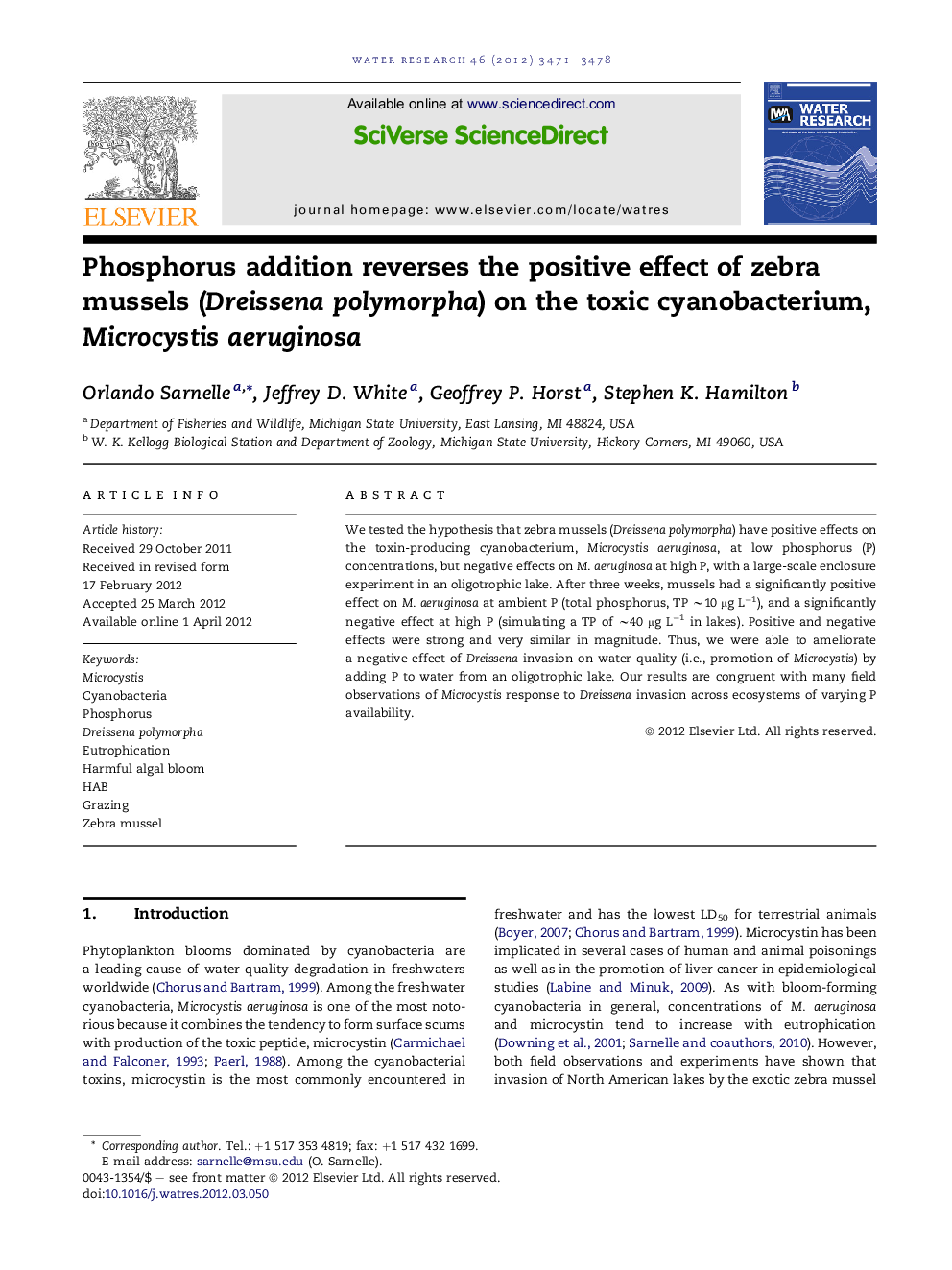| Article ID | Journal | Published Year | Pages | File Type |
|---|---|---|---|---|
| 6367796 | Water Research | 2012 | 8 Pages |
We tested the hypothesis that zebra mussels (Dreissena polymorpha) have positive effects on the toxin-producing cyanobacterium, Microcystis aeruginosa, at low phosphorus (P) concentrations, but negative effects on M. aeruginosa at high P, with a large-scale enclosure experiment in an oligotrophic lake. After three weeks, mussels had a significantly positive effect on M. aeruginosa at ambient P (total phosphorus, TP â¼10 μg Lâ1), and a significantly negative effect at high P (simulating a TP of â¼40 μg Lâ1 in lakes). Positive and negative effects were strong and very similar in magnitude. Thus, we were able to ameliorate a negative effect of Dreissena invasion on water quality (i.e., promotion of Microcystis) by adding P to water from an oligotrophic lake. Our results are congruent with many field observations of Microcystis response to Dreissena invasion across ecosystems of varying P availability.
Graphical abstractDownload high-res image (169KB)Download full-size imageHighlights⺠We tested whether the positive effect of Dreissena on toxic Microcystis can be mitigated by adding P. ⺠The hypothesis was tested with an enclosure experiment in an oligotrophic lake. ⺠Dreissena's effect was positive at low P, not significant at medium P and negative at high P. ⺠We suggest that Microcystics may decline in low P lakes with Dreissena if P loading is increased.
